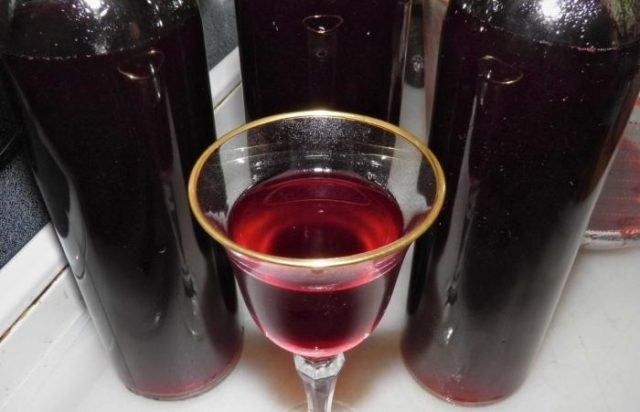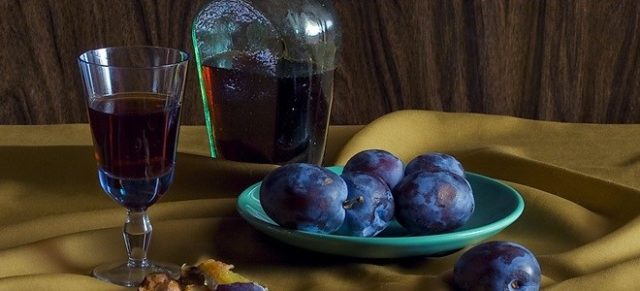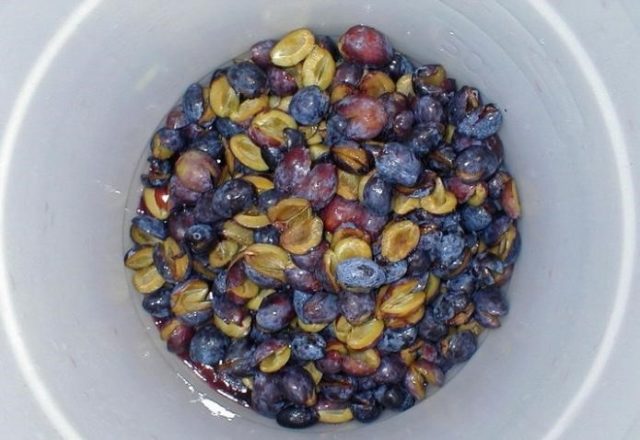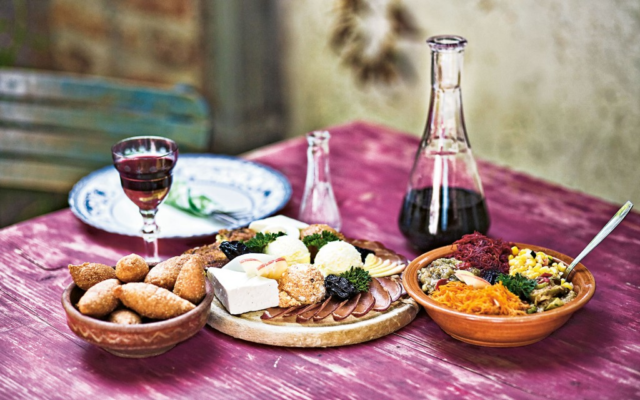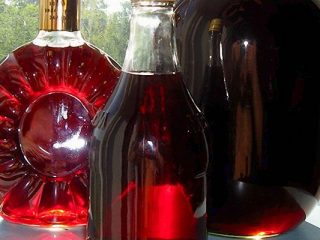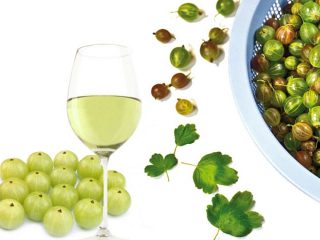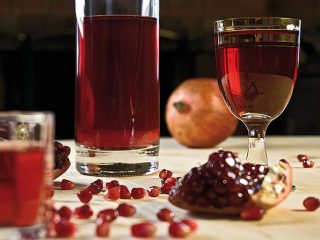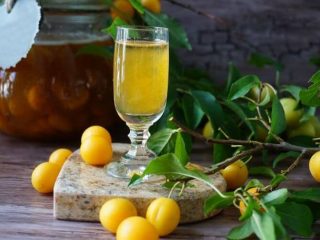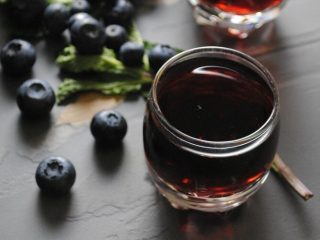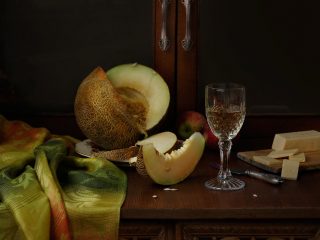Content
Slivovitsa is a strong alcoholic drink that is easy to make at home. There is both a classic recipe and a slightly modified version. The drink has a pleasant taste, excellent aroma. Suitable for home use, for serving to a festive table. Important! After distillation, the drink is allowed to stand for a sufficient time. This is the secret of real plum brandy from Serbia, where it languishes for 5 years in oak barrels, acquires a spicy, delicate taste, and a unique aroma.
Serbian plum brandy
The second name for plum brandy is rakia. Made according to a classic recipe by Serbs. The country is the largest supplier of plums in Europe. The drink is produced in large quantities, only certain countries or factories have the right to sell, officially produce Serbian brandy.
Recipe Serbian Plum Brandy is a plum brandy made with fermented plum juice. Strength depends on the number of distillations. For example, the Czechs are more fond of plum brandy, which has been distilled three times. The strength of the drink is 75%.
First advice for cooking: do not wash the plum thoroughly, as the fermentation process will not start. There are colonies of wild yeast on the skin. They will be able to start the fermentation process, if the technology is followed, the addition of artificial yeast or additional sugar is not required. Just wipe the fruit with a cloth to remove any visible dirt.
Experienced winemakers suggest pre-freezing the fruit so that the drink has a rich taste. For aroma, raisins are used, it will help to activate fermentation, there is more natural yeast on raisins than on plums. No need to add artificial yeast, the process will start on its own.
Secrets of making plum brandy at home
Slivovitsa is considered a drink of Serbia and other Balkan countries, but every winemaker with a little experience can cook plum brandy at home for consumption at the festive table. Slivovitsa - refined moonshine, unlike wine, is distilled, has a high strength. This drink is not inferior in strength to good brandy or cognac, and even surpasses them in taste.
For cooking, you need the following ingredients:
- 11 kg of plums;
- 9 liters of water;
- sugar to taste varietal sweetness of plums.
For cooking, it is necessary to use not only plums, water, but also sugar, if necessary. It depends on the degree of ripeness of the fruit. Ripe fruits have a sufficient amount of sugar; plum brandy is prepared without the addition of artificial sugars. Sometimes the fermentation process starts without additional sugar syrup, for unripe plums that grew in a rainy year, additional sweetness is needed.
Homemade plum brandy recipe
To make plum brandy, you need a plum. Any variety is suitable, preferably Egg, Mirabel, Hungarian. It is advisable to harvest the fruits before frost, while the plums are most saccharine, while they are not shriveled around the cuttings. Fruits are strong, even, without signs of disease.
Be sure to sort the fruits, remove moldy, spoiled specimens.The fruits must be divided into two parts, the seeds must be removed, so there will be no bitter taste. Throw away rotten fruits, they will spoil the taste, quality of plum brandy.
It is necessary to prepare the fruits for fermentation, after the fermentation process, a distillation process is necessary. Distillation can be carried out both with a store apparatus and with a home-made moonshine still. It is enough to distill once, experienced winemakers carry out the distillation twice. Depends on the quality of the distillation. The optimal drink appears only after the drink has been infused for a period of time. The unique drink is infused for 5 years, at home - less.
Preparation of ingredients
The most ripe fruits are selected, maybe even too ripe, but at the same time without signs of rot or mold. Plums do not need to be washed, and very dirty specimens just need to be wiped. In this case, wild yeast remains on the peel, which starts the fermentation process.
The fruits, after the seeds are removed, must be crushed into a mushy state. Fruits for plum brandy at home are most often chopped using a meat grinder or blender. Sometimes with a wooden mortar.
We put the wort for fermentation
In a container for fermentation, it is necessary to place chopped pitted plum. The optimum sugar content should be 18%. Can be measured with a special device. Experienced winemakers determine the sugar content in the taste. If there is not enough sugar, add. It is better to do this gradually, 200 g each.
After that, the fermentation container should be covered with gauze and placed in a warm place. After a day, you can see the foam. A sign that the fermentation process has begun. If the process does not start, you need to add another 12 hours.
After the start of the process, it is necessary to add water, pour into another container, with a narrower neck. The container should not be filled to the end so that there is room for foam formation. If you do not provide for places, the foam will pour out, excess moisture and an unpleasant odor will form. Therefore, experts recommend removing the “hat” at the time of education.
Fermentation process
The fermentation process should take place in a dark place, out of direct sunlight. The fermentation temperature should be around 15 ° C. At home, the temperature can be brought up to + 22 ° C. The timing of fermentation depends on the external temperature. At a higher temperature, 2-4 weeks of fermentation is enough, and at 15 degrees, the process takes about 8 weeks.
It is not necessary to stir the wort; this is done by the emitted carbon dioxide. But the "cap" rising up from the remains of the plum should be regularly removed, since it contains various harmful substances. They affect the digestive system, spoil the taste, and release toxins.
The fermentation process of plum brandy ends when carbon dioxide ceases to emit. This can be seen from the installed water seal. A medical glove with a pierced finger is installed as a water seal. Slivovitsa is prepared at home according to a simple recipe, it is important to just stand it, control the fermentation process.
Distillation of homemade plum brandy
At home, it is necessary to distill plum brandy twice. For the first time, it is necessary to drive until the alcohol ceases to be felt in the distillate. In this case, there is no need for fractional distillation, and there is no need to cut off the head and tail elements.
The trimming of "tails" and "heads" occurs during the second distillation. In this case, it is important that the raw alcohol is diluted to 35%. After the second distillation, according to the rules, a drink is obtained up to 60 degrees. But at the same time, the drink should be diluted to the optimal 45 degrees. Then the drink turns out to be aromatic, tasty, and pleasant to drink.
100 kg of plums can yield 11 liters of plum brandy. Making plum brandy at home is a simple recipe, it is important to just follow all the technology and apply the principles of distillation step by step.
Should plum brandy be aged
In order for plum brandy to really ripen, it must be allowed to stand in oak barrels. If there are such containers and a place where they will stand, then the plum brandy will be optimal and no different from the real Serbian plum brandy. An oak barrel is a universal container, it allows you to preserve the drink, gives a piquant taste, a pleasant aroma. Slivovitsa from an oak barrel is a festive, elite drink. Such a drink is expensive, sold to tourists in Serbia and the Balkan countries at an inflated cost. The minimum maturation period in barrels is 5 years, sometimes the drink matures longer.
At home, glass containers are also used for aging, the main thing is to observe storage technology. After distillation, you need to let the plum brandy brew for at least a week. Only then can you start tasting. Tasting at the time of production will not give an effective understanding of the taste; it will not work to taste the drink. The drink can be infused for several years.
How to drink plum brandy correctly
Drinking the Serbian recipe correctly is very important. First of all, you need to understand that this is hard alcohol, which is consumed mainly before meals. Suitable for use with hot meat. Serbs prefer not to bite the first glass in order to properly feel the entire delicate taste of the drink. Experienced winemakers advise against mixing rakia with juices or other drinks, otherwise an unpleasant taste will appear and a delicate aroma will disappear. Potatoes, meat, and cornmeal bread are used as snacks.
Conclusion
Slivovica is the national pride of Serbia. Tourists are treated to plum brandy, but you don't have to visit Serbia to taste this wonderful drink. You can make delicious alcohol from plums that have grown in the country. The recipe is simple, the ingredients are also ordinary, and you can buy a moonshine still for distillation in the store or make it yourself. And the basics of technology do not differ from the production of any fruit alcohol with an alcohol content above 30%. It is important to understand that plum brandy is not wine, but a stronger drink; production involves a distillation process. This drink is tasty and healthy, but consuming large quantities of it is unhealthy.
